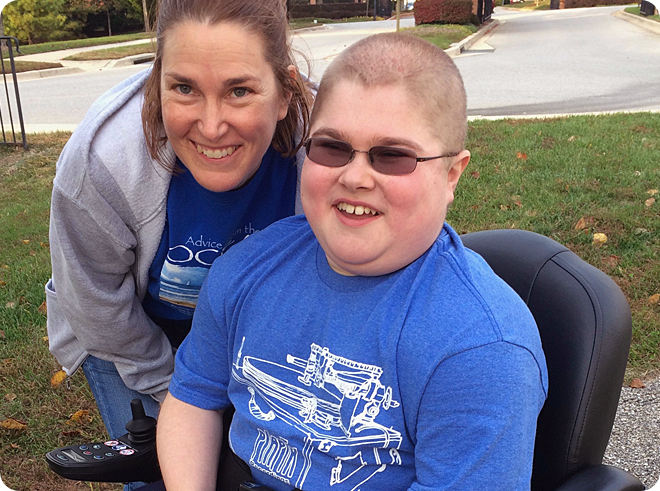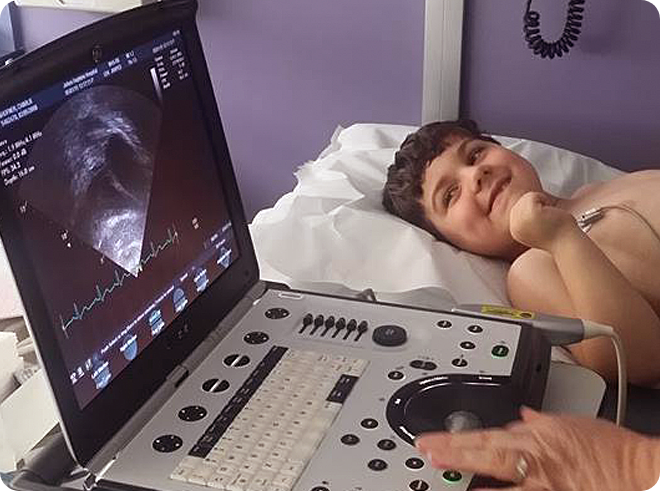
CALEB, living with Duchenne.
Talking About Duchenne
Talking to Your Child About Duchenne
Although talking to your child about Duchenne may feel very difficult, know that you are not alone. There are many others who have experienced similar challenges and can help you with your journey.
Once your child can understand a basic explanation, you can begin to provide them with simplified information about Duchenne, such as a discussion about why your child may have difficulty running, jumping, or learning. Having these conversations can also provide your child with an opportunity to ask questions or bring up concerns.
Moving Towards Adolescence
As your child approaches puberty, you may want to talk about things that could be causing them distress. These include the short stature (due to reduced growth) that is common in Duchenne and worsened by daily steroid use. Another issue is delayed puberty, which is associated with steroid treatment. Both short stature and delayed puberty can negatively impact self-esteem and quality of life in adolescents. It could be helpful to talk to your child about their feelings and fears surrounding puberty, and reassure them that therapies (eg, testosterone to treat delayed puberty) and support networks (eg, other Duchenne adolescents and families) are available to help.
Your child may have questions about the future and what it holds for them. Talking with your child about the fact that many people with Duchenne go to college, pursue careers, and have families could aid in reassuring and encouraging them.
Talking to Others
Helping others around you understand Duchenne can be challenging, especially as your child grows and has new experiences. Because Duchenne is uncommon, it may not be something those around you are familiar with. The good news is there are resources that can help educate others and make these conversations more constructive.

Your child’s doctor can be a resource and a valuable advisor as Duchenne progresses and symptoms become more severe. For children with Duchenne, doctor visits are a very important aspect of ongoing care.
Talking with Medical Professionals
Today, doctors are pressured to see more patients in less time and to spend less time with each patient. The increasing complexities of the healthcare system may make it more difficult to find the answers you need. Establishing a strong relationship with your child’s primary doctor is important.
Besides your child’s doctor, you may also want to have conversations with your family and friends, as well as teachers and staff at your child’s school. Family and friends will probably have some questions and may want to know how to become an even stronger source of support. You may also want to talk to your child’s friends and their parents to help them understand your child’s condition and how it affects daily activities.
At school, it may be helpful to talk to the faculty and staff and explain your child’s needs. You could work with your child’s teachers and school social worker or psychologist to develop an Individualized Education Plan (IEP) that addresses your child’s needs at school and outlines necessary accommodations.

